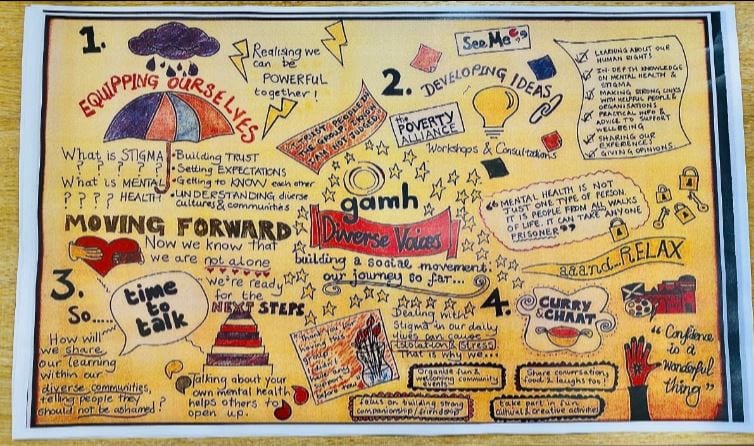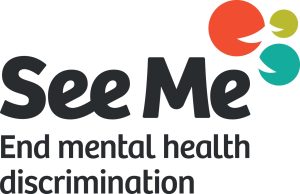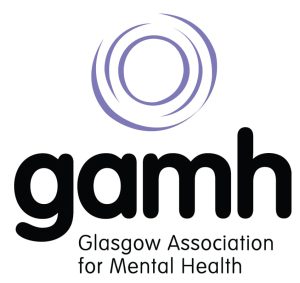See Me: End Mental Health Stigma
Case study
See Me is Scotland’s a national programme to end mental health stigma and discrimination. There is a commitment to work with multiple equality groups to support the development for them to tackle the specific stigmatising behaviours within their community.
Dual stigma is experienced by people in BME communities who face racial discrimination in addition to mental health stigma. Time to Change England reported that 93% of people from BME communities face discrimination because of their mental health and 73% of people from BME communities face some form of racial discrimination.
See Me partnered with Glasgow Association for Mental Health (GAMH) in July 2019 in order to design and implement a programme of activity that empowers individuals and communities to address mental health stigma in settled Black and Minority Ethnic (BME) communities in Glasgow.
The main aims of the project are to:
- grow the lived experience and influencer element of the local communities and empower the voice of lived experience to raise awareness of mental health and address the impact of stigma and discrimination within particular settled communities through supporting culture and practice change in local services and organisations
- to learn more about the specific barriers females are facing in their communities to be able to talk openly about mental health and get the right help and support
- to create a diverse voices group that works together utilising peer support elements to be able to build the foundations to tackle mental health stigma
- engage pro-actively with the local community and relevant organisations and work with partners to identify opportunities for the voice of lived experience to influence and have an impact on mental health stigma and discrimination
- share learning about what works to embed stigma and discrimination in culture and system change including the importance, value and impact of empowering the place of lived experience

The diverse voices group derived from the parent group set up by GAMH that predominantly works with females. It has created a safe space for the women involved to be able to explore mental health without fear of judgement or discrimination and explore practical accessible ways to take action.
So far the project has been able to:
- Identify people from BME communities as willing participants in this initiative to form the diverse voices group
- Create a safe and supportive environment where people with lived experience can explore the challenge issues relating to mental health stigma and discrimination
- Introduce multiple areas of stigma and discrimination i.e. poverty, young people
- Create the opportunity for ‘Diverse Voices’ Group to have their first session in relation to the wider community inviting family and friends to a ‘Time to Talk Day Event’ where the group utilised the “communities can” resources, conversations starters and screened the ‘beyond prejudice’ film to kick start conversations about mental health and encourage the wider community to action
- Undertake Outreach Work – to promote the projects aims which scoped and identified community ‘hotspots’ to initiate conversations and partnership work with key BME organisations for future partnerships. These include:
- Glasgow Womens Library
- Glendale Womens Café
- Saheliya
- Shakti Womens Aid
- Reach Glasgow
- SMHAFF – Mental Health Foundation
- Share learning from the project as part of See Me’s National ‘It Starts With you Event’
- Provide the Diverse Voices group with Human Rights & GP Top Tips leaflet (available in languages spoken within BME communities)
Work with group through different engagements has also been able to highlight some of the challenges and barriers faced by women in the diverse voices group as well as suggestions for improvements and things that work well in supporting good mental health. Key things to highlight that will be used as evidence to influence wider communities and agendas:
- Information on how to access health services were difficult to understand due to language barrier.
- The women in the group highlighted they found it difficult to talk about mental health for fear of being isolated, rejected, misunderstood, judged and treated differently.
‘Embarrassment, don’t want to be laughed at. There is a big stigma due to ignorance.’
- The Diverse Voices group told us that creating a safe environment built upon trust and hearing others talk about their own mental health helped them learn and understand about others experiences and how we can all struggle at times. Knowing that you are not alone and feeling accepted can help people open up
‘I trust the people in the group. I know I am not judged. We all have issues albeit different I can have conversations easily.’
- People within the group also provided great insight into what things might make it easier for people to talk more openly about mental health. The group noted that talking about your own mental health to show others it’s okay to talk about it is a good way of starting the conversation. This helps in connecting with others, sharing information, talking about our experiences and raising awareness. If people feel safe within the environment and don’t feel judged they are more likely to want to open up.
Talking about your own mental health helps others open up.’
How to Support and Keep in Touch
- Understand that there are specific challenges facing women from BME communities in being able to have good mental health.
- Recognise that the mental health stigma and discrimination in many communities makes it hard for people to talk openly and ask for help.
- Challenges in the wider system in relation to language barriers and cultural understanding also makes it difficult for people to get the right help and the right time for them in relation to their mental health
- Ask someone who you think may be struggling if they are okay and really listen.
- We all have mental health no matter our background and its important to look after it. Normalise the conversations around mental health and let people know its okay not to be okay.
- Promote and signpost effective ways to look after our mental health.
- Download our “Communities Can” resource here and find ways of embedding this in your work to mobilise a movement and increase empowerment to tackle mental health stigma and discrimination.
See Me Scotland
Website: www.seemescotland.org
Facebook: https://www.facebook.com/seemescotland/
Twitter: @seemescotland
Glasgow Association for Mental Health (GAMH)
Website: https://www.gamh.org.uk/
Facebook: https://www.facebook.com/gamh.charity
Twitter: @GAMH1977

